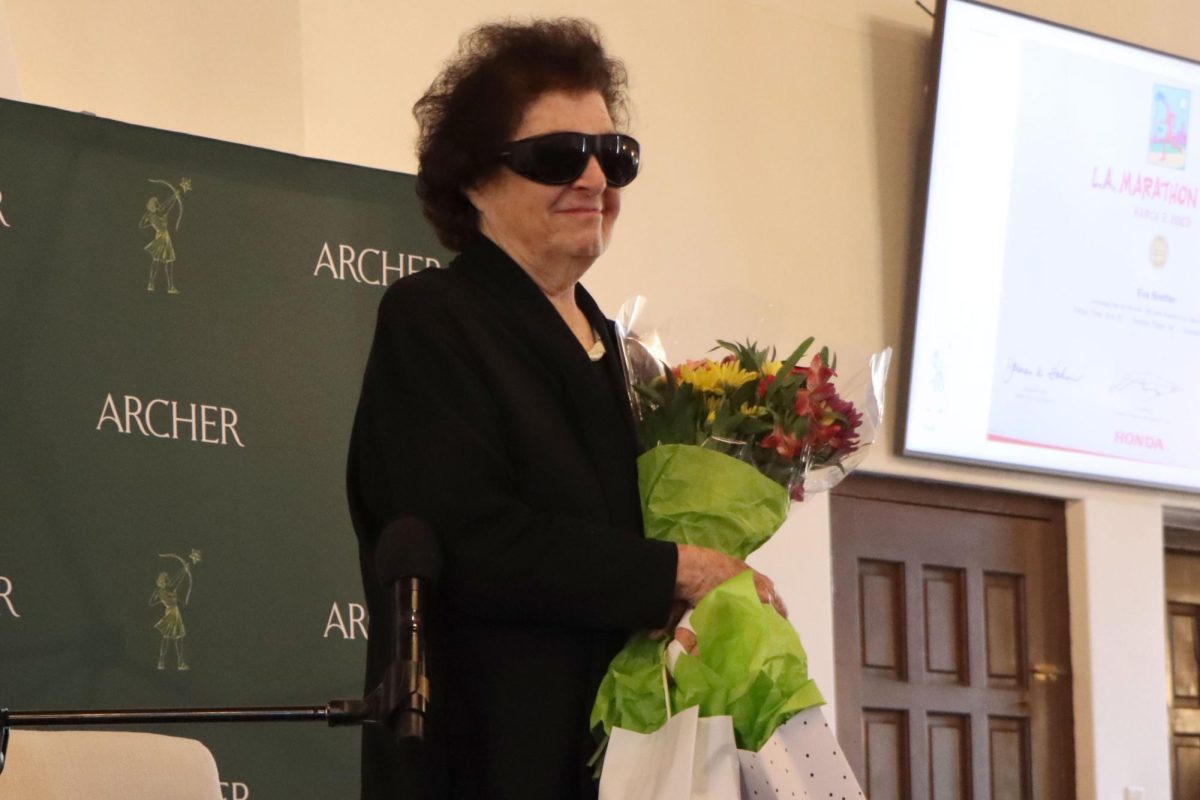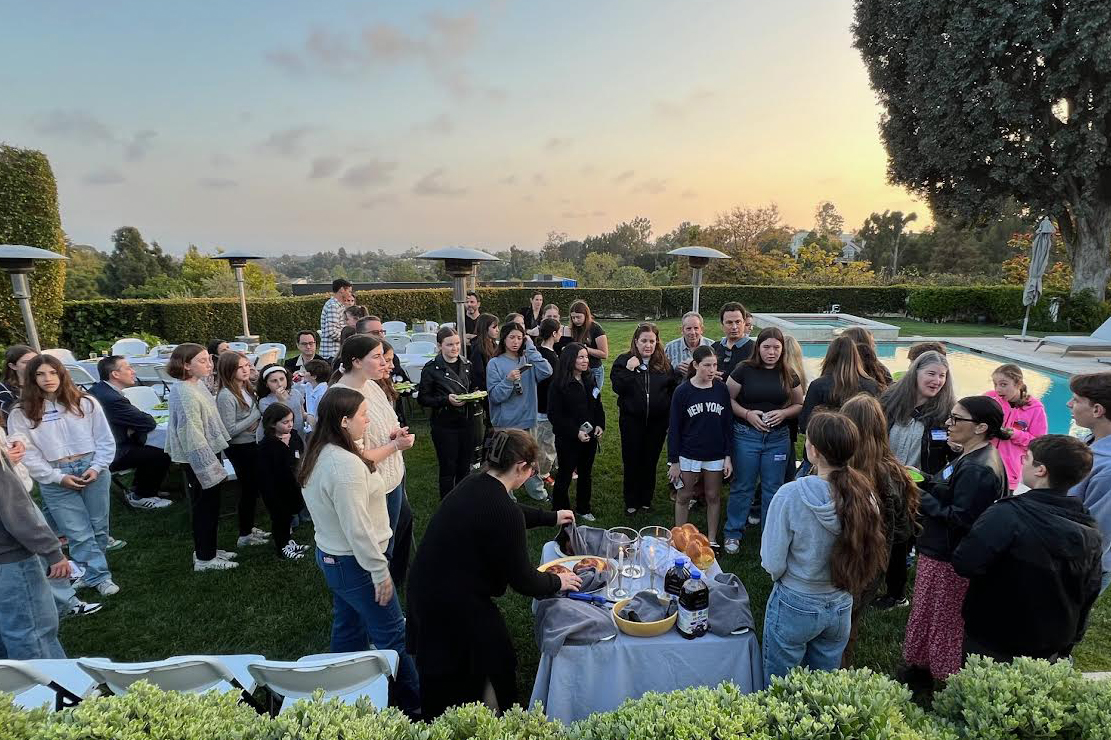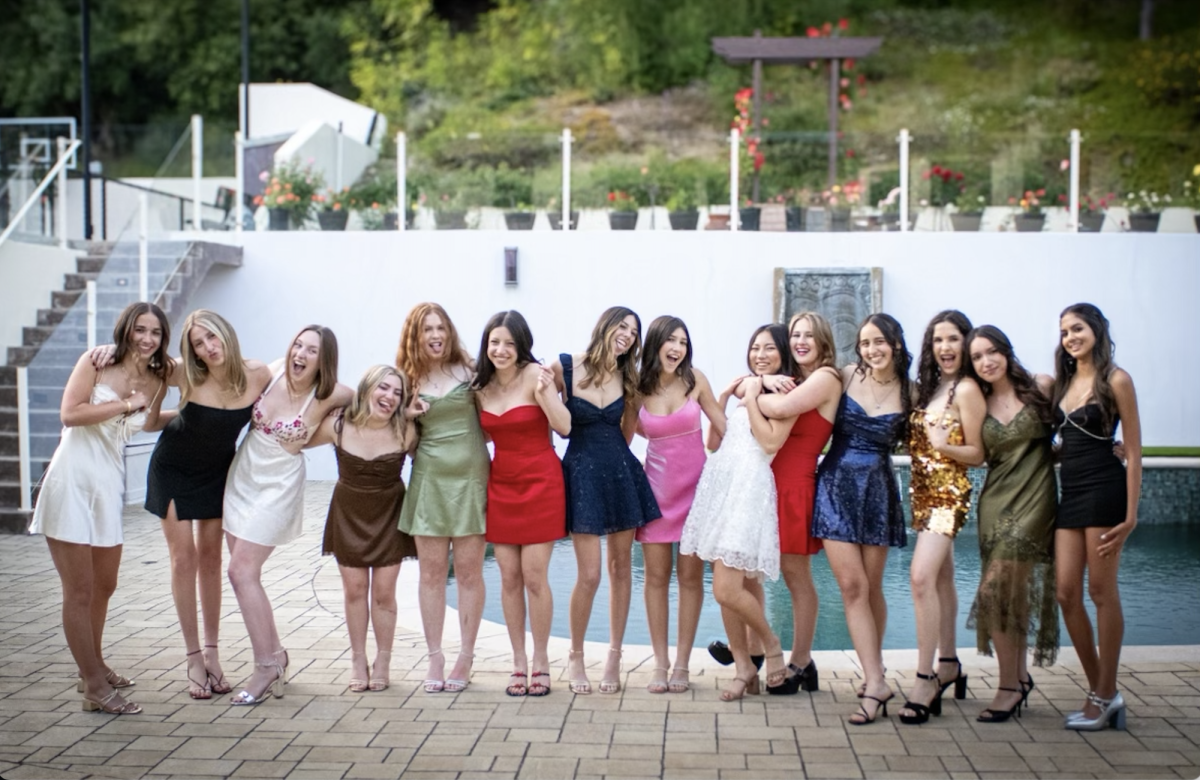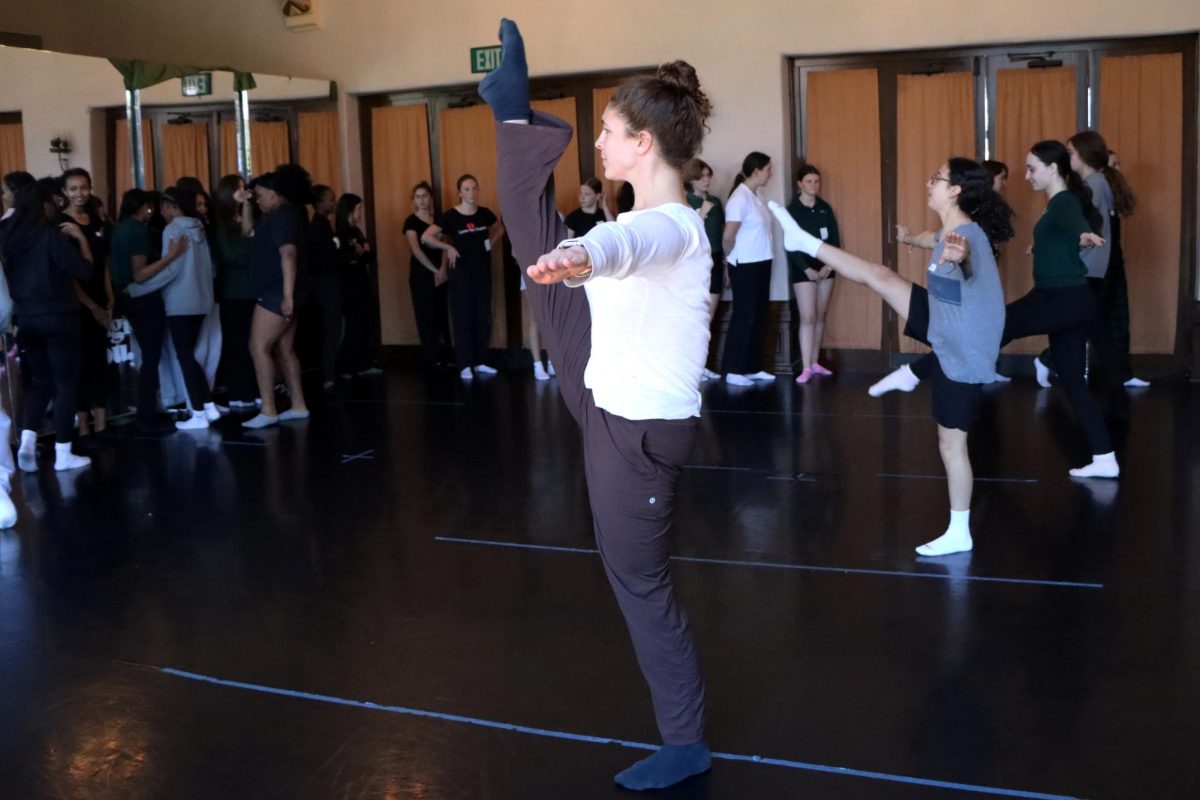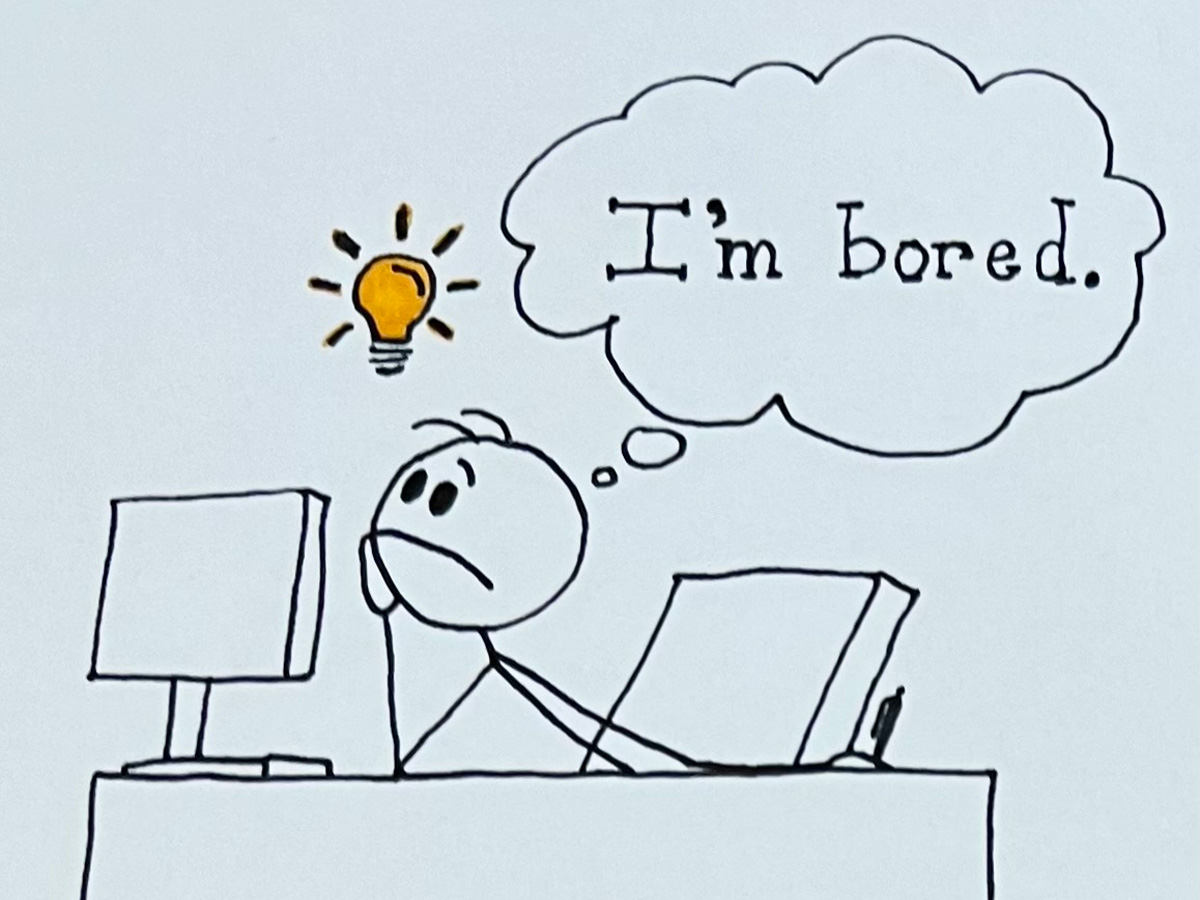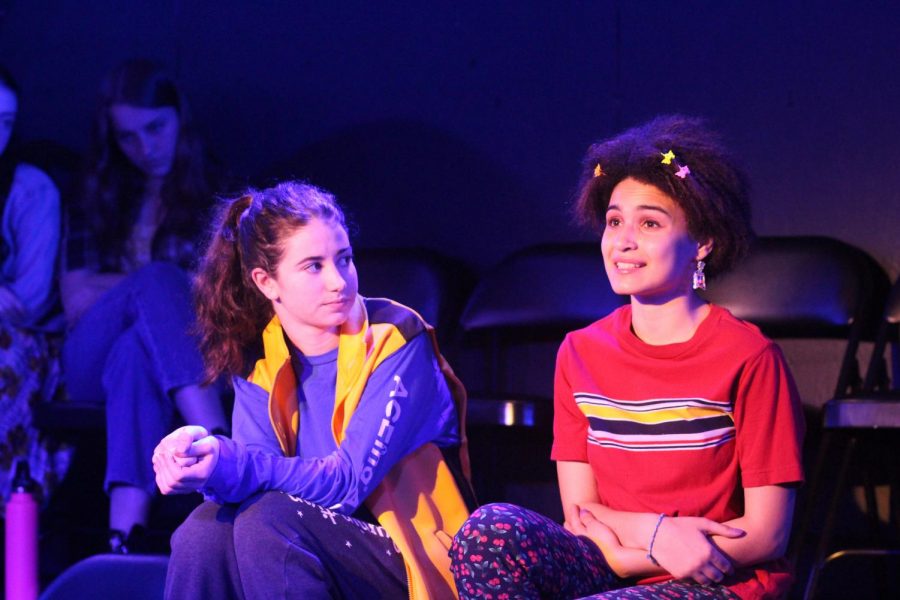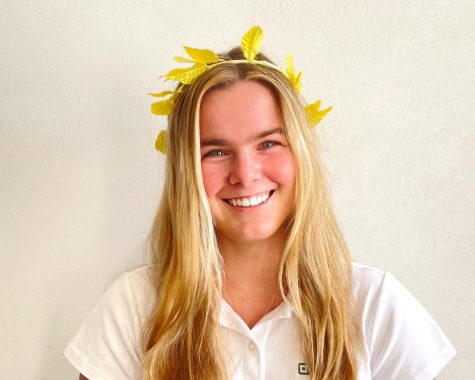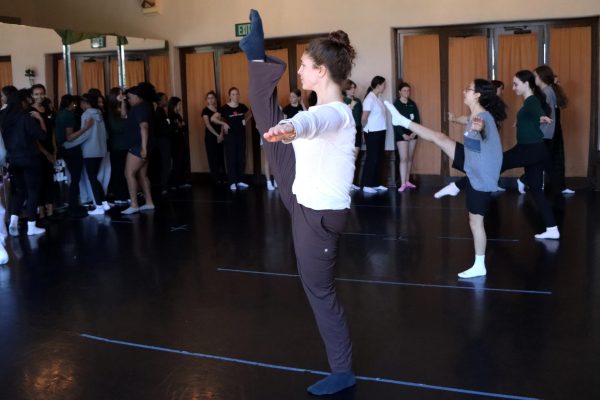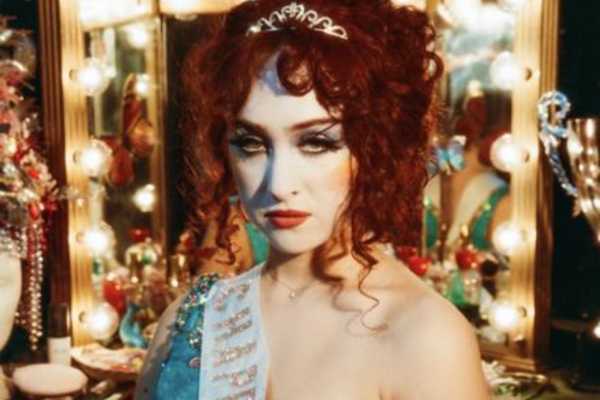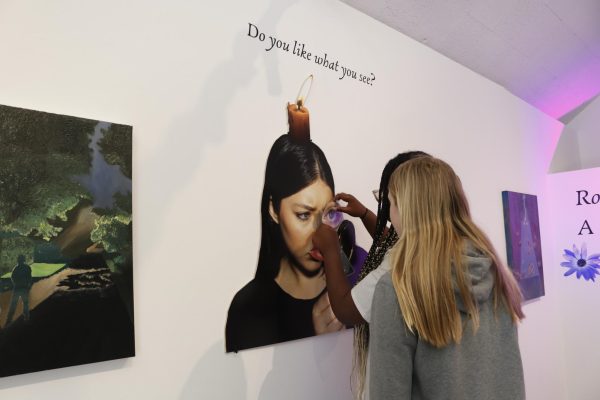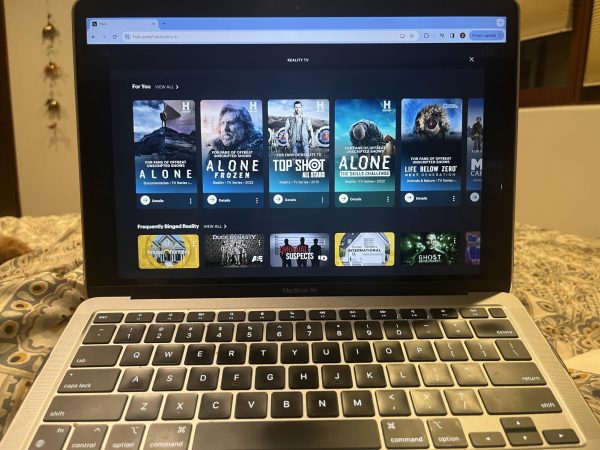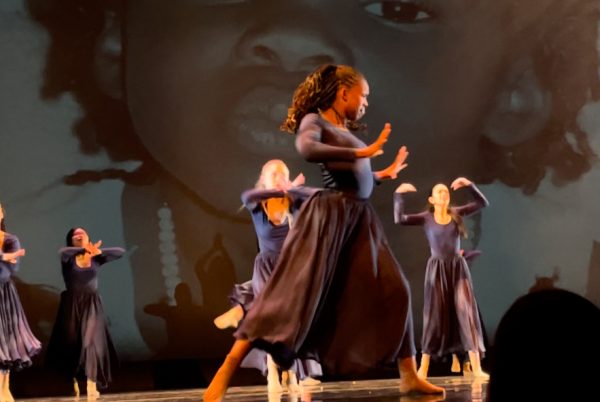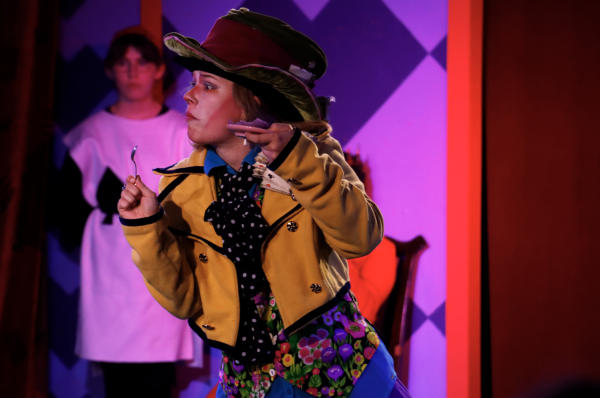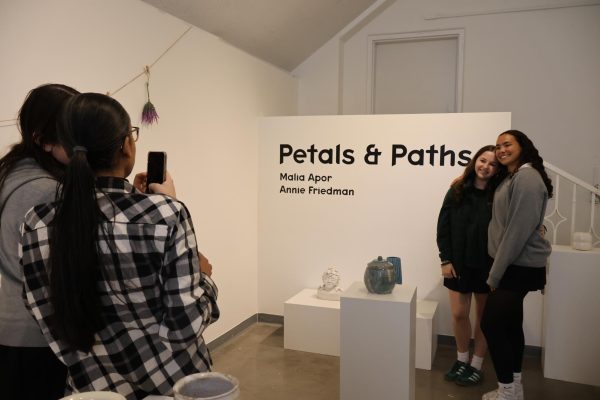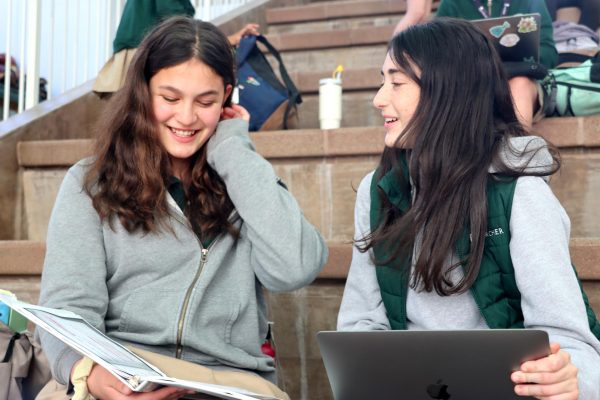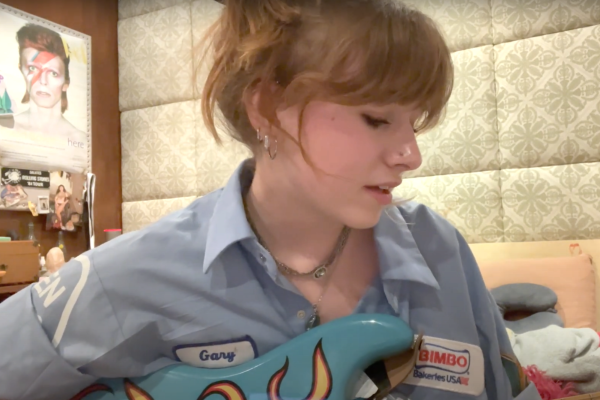The show must go on: US play ‘Every Brilliant Thing’ adapts to coronavirus crisis
Photo credit: Amalea Brown
Sophomore Glorianna Chase takes the stage for a tech rehearsal show while Langdon Janos volunteers to fill in as an interactive audience member. In total, the Upper School play had five shows, all keeping within the 50 people or under order.
April 25, 2020
After months of preparation, the performance of the Upper School play, ‘Every Brilliant Thing’ by Duncan Macmillan and Jonny Donahoe, looked different than students and faculty expected. On March 12, just hours before the first performance, Mayor Garcetti “ordered all city departments to postpone or cancel all non-essential public events or group activities that require close contact and meetings of 50 people or more.” Because of Garcetti’s announcement, audience sizes were limited to 50 people. Those who couldn’t make it into the performance space or didn’t want to risk going to a public space could view the performances on a livestream available on YouTube.
Cast and crew members had to quickly adapt to the changing circumstances. With students no longer able to attend the faculty show, those involved in the play began to take precautions, such as limiting the number of people backstage, while balancing what was best for the performance. The play heavily relied on audience participation.
“During the show, [the production] just became smaller,” Lily Kerner, the sophomore stage manager, said. “It was a lot different than we were expecting. It wasn’t necessarily bad, because the play is so great that it could be adapted for a larger or smaller audience.”
Before the outbreak, those involved in the play underwent a special type of preparation in order to deal with the mature themes in the play, which included depression and suicide. Speaking with school counselor Jaime MacDonald, actors learned how to handle the topics they were performing and how to deal with any emotions that came along with the content.
“We thought it was really important to have resources,” Tracy Poverstein, faculty director, said. “Ms. MacDonald also did a session with the actors to educate them a bit more about depression, and suicide and suicide prevention.”
As uncertainty loomed over the situation throughout the week, an open rehearsal was held on Wednesday, March 11. The faculty show, which is normally open to both faculty and students, was only open to faculty members, and later shows limited attendance at 50 people. The shows on Friday and Saturday were all limited to 50 attendees or less.
Langdon Janos, a sophomore cast member, said that adapting to a smaller audience was challenging.
“Your acting partner is kind of the audience, so we were expecting to have a lot more reactions and being able to play off the audience, so that was something we kind of lost,” Janos said. “I liked having a small audience as well, though, because you could tell that they were very attentive.”
However, a “silver lining” for many of the performers was that the show via live stream was viewed by more people than could originally attend.
“I think it was nice because it reached a larger audience,” Janos said. “My grandparents and friends all go to watch it from their house.”
Between both nights of live streaming on Friday and Saturday, there were over 500 people who tuned in to watch the performance.
When giving a pep talk to the performers Poverstein said, “Right now people need hope,” Poverstein said to the performers right before the faculty show. “I think you need to look at it as your job to tell the story and your job to help your audience.”

